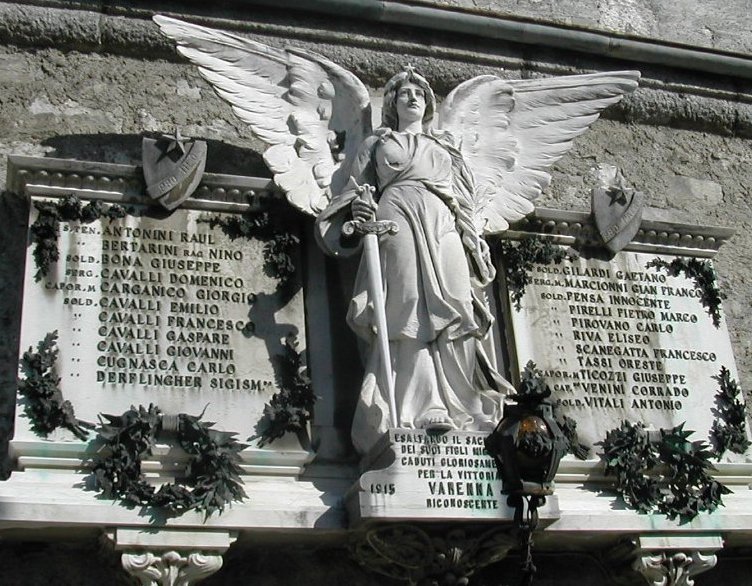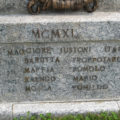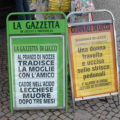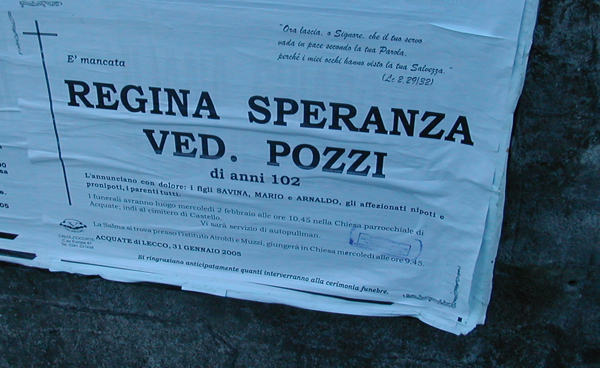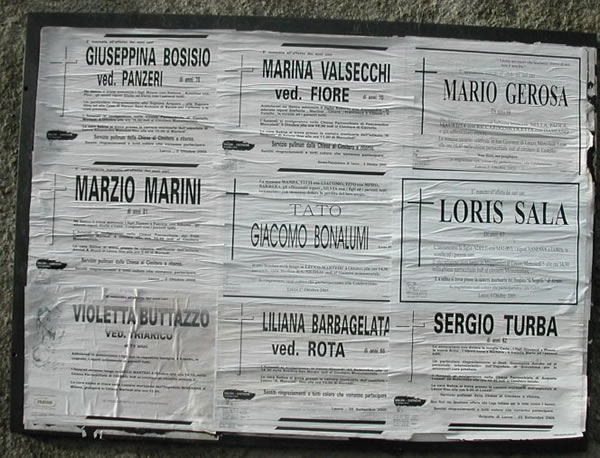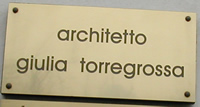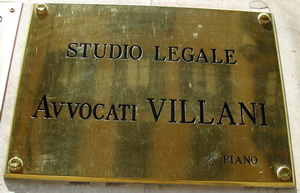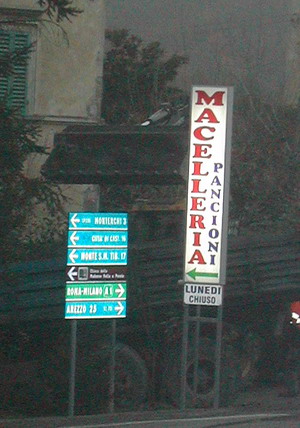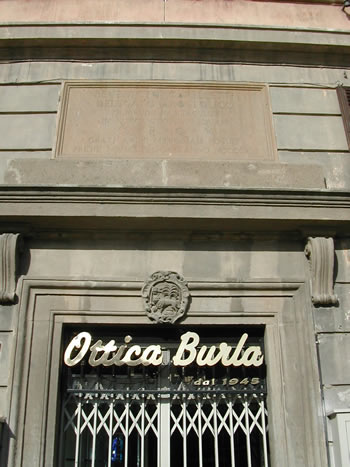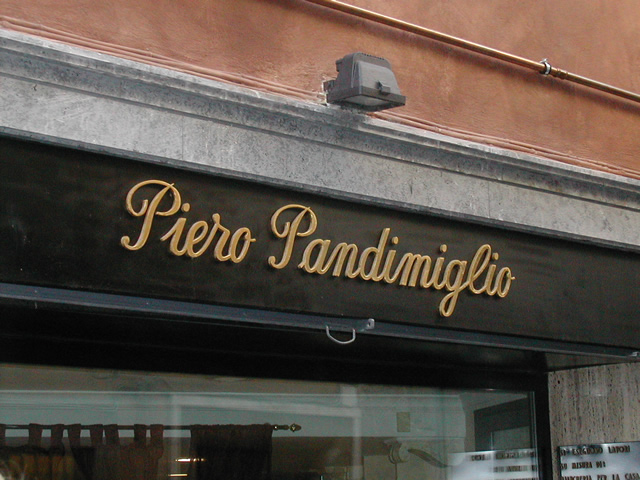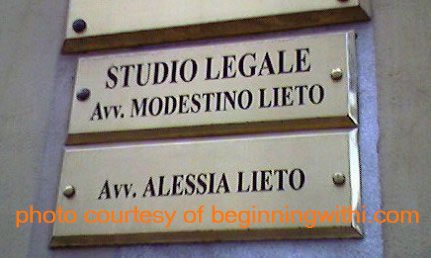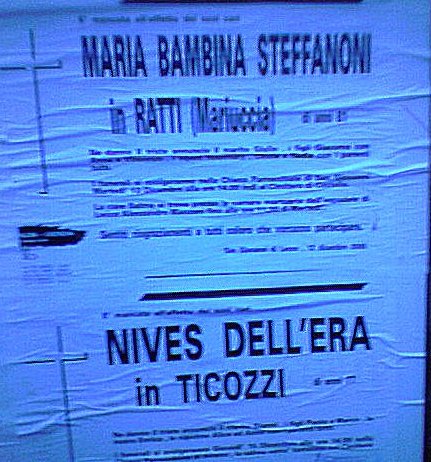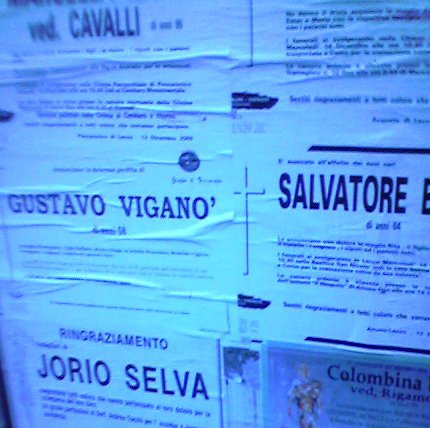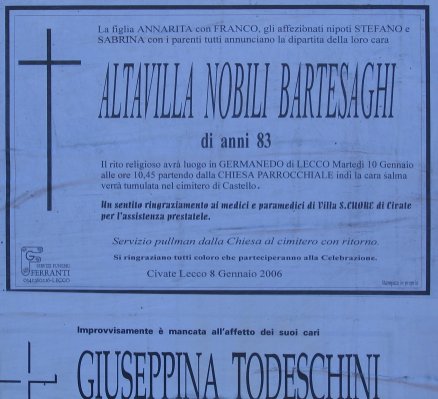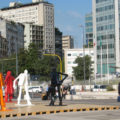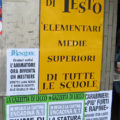Above: a monument to Varenna’s WWI dead. If your last name was Pensa (“think”), why would you name your child Innocente? Monuments like this also give clues to names which were once common but have now fallen out of popularity: Gaspare [GAHS-pah-ray], Eliseo [ell-lee-ZAY-oh], Oreste [oh-RES-tay], Sigismundo [sih-jiss-MOON-doh] and Corrado [cor-RAH-doh] are very rare today.
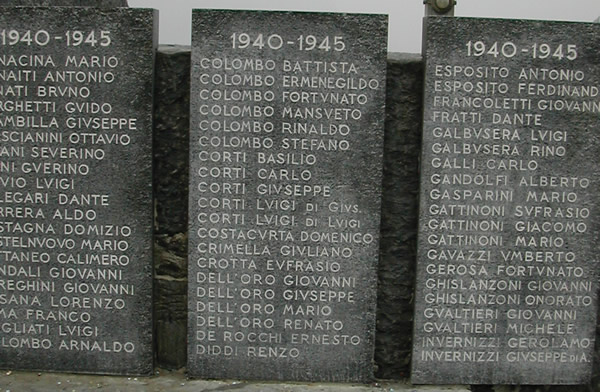
War memorial in Lecco: more names which are now rare (and might be considered funny):
- Ermenegildo [air-may-nay-JEEL-doh]
- Eufrasio [ey-you-FRAZ-ee-oh]
- Mansueto [mahn-SWAY-toh] (“gentle”)
- Fortunato [for-too-NAH-toh] (“lucky,” but this may also be the name of a saint)
- Onorato [on-oh-RAH-toh] (“honored”)
- Severino [seh-veh-REEN-oh] (a saint)
- Domizio [doh-MEET-zee-oh] (Roman name)
- Calimero [cah-lee-MARE-oh]
- Arnaldo [are-NAHL-doh]
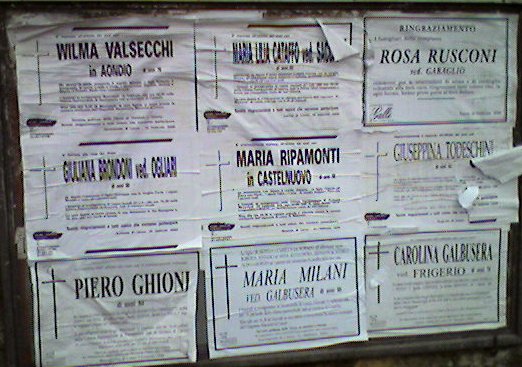
Wilma [VILL-mah] and Giuseppina [jews-ep-PEEN-ah] would be considered old-fashioned. Carolina [car-oh-LEAN-ah] is still current (my daughter has been at school with at least one Carolina).
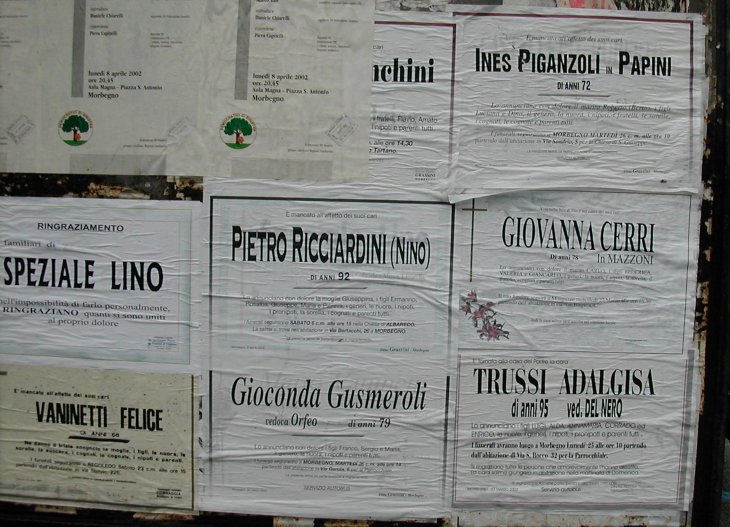
- Ines [ee-NESS]
- Gioconda [joe-COND-ah] – In Italy, an alternate name for the Mona Lisa is La Gioconda. Note that this one was the widow of a Mr. Orfeo [or-FAY-oh] (Orpheus).
- Adalgisa [ah-DAHL-jizz-ah] – Very old-fashioned.
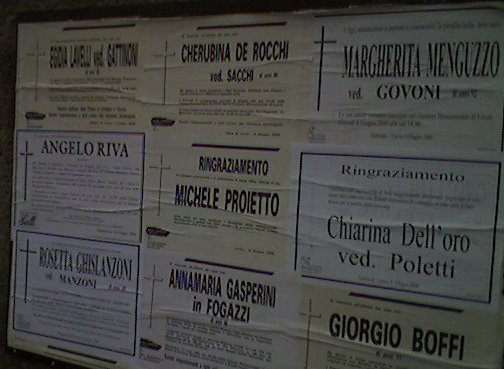
- Egidia [eh-GEE-dee-uh]
- Rosetta [Rose-ETT-uh]
- Cherubina [care-oo-BEAN-uh] – “Little Cherub” – Huh?!?
- Chiarina [kya-REE-nah] – unusual, but cute. A diminutive of Chiara [KYA-rah], meaning clear, transparent, or light.
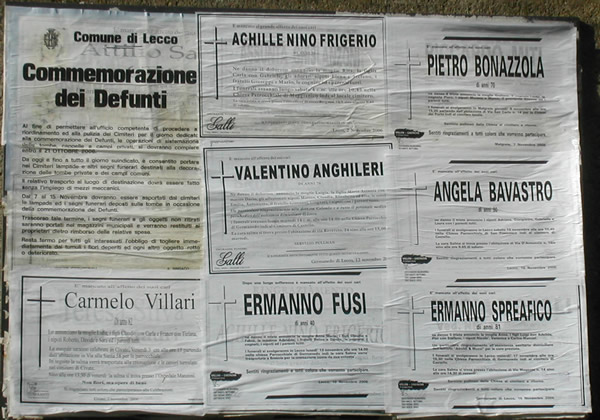
- Achille = Achilles
- Valentino – well, you all know that one
- Ermanno – no less than two of them! = Herman
- Carmelo – very current in southern Italy
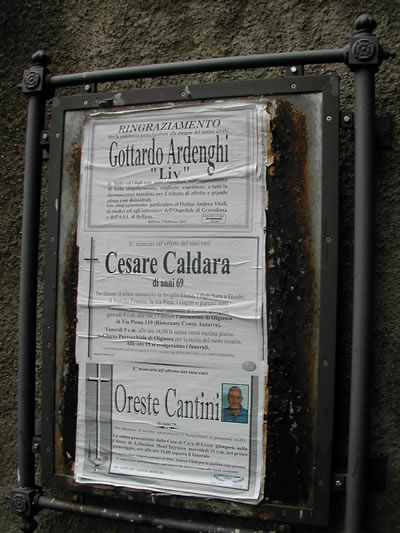
- Gottardo [go-TAR-doh] – a saint with an important Alpine mountain pass and two major highway tunnels named after him.
- Cesare [CHAY-za-ray] – Caesar. You knew that, right?
- Oreste [o-RESS-tay] – the Greek Orestes
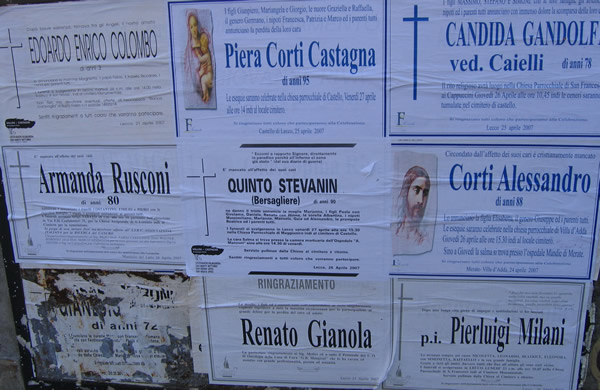
- Edoardo Enrico – It’s unusual for an Italian to use a middle name in any context. My husband, for example, has several which may be on his baptismal certificate, but do not exist on his birth certificate or any other legal document, and which are never used. Beyond that, Edoardo [eh-doh-AR-do] and Enrico are both names that are not unusual, but not overly common, either.
- Piera – [pee-AIR-a or PYAIR-ah] Female version of Piero, of course.
- Candida [CAHN-did-ah] – Carries the connotation “white” or “pure.”
- Armanda [ar-MAHN-dah]
- Quinto [KWEEN-toh] – “Fifth”.
In some families it seems to have been the practice, dating back to Classical Rome, to give your children numbers rather than names: Primo, Secundo, etc. Or, having grown tired of trying to find names after the first few, the parents seem to take this easy way out. - Pierluigi – Pier is often used as a sort of adjunct to other (male) names: Piergiorgio, Pierluigi, even Piermaria (still a male name by virtue of the Pier on the front).
Anything you can add on the lore and history of old-fashioned Italian names will be welcome!
Related: Italian Baby Names I Happen to Like

